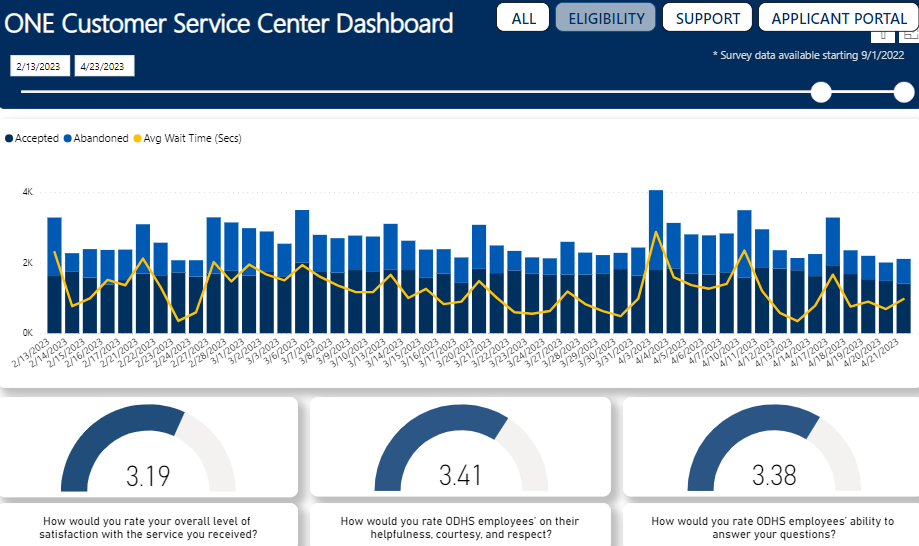
Despite reports of enrollment errors by Oregon’s eligibility system for medical and other benefits, the automated part of the $416 million project worked pretty well during the pandemic. It’s the humans entering data into it that were the bigger problem.
That was the central conclusion of state auditors looking at the Oregon software development project known as ONE in the wake of news outlets surfacing errors, delays and other glitches.
Errors by costly high-tech projects are a sore spot for Oregon. A decade ago the state found itself the butt of jokes nationally over its high tech health insurance debacle known as Cover Oregon, which spent more than $300 million on a project that never worked.
Nothing as bad as the chaos caused by Cover Oregon, which included investigations by several federal agencies, has occurred with ONE, its successor project.
Auditors reviewing the system’s functioning during the pandemic said that most of the errors they found involved manual data entry, rather than automated processes
“As a result, these and other input errors could lead to individuals being denied medical and nutrition assistance benefits they are eligible to receive.”
Among the audit’s findings:
A sample of 40 eligibility reviews for people seeking health benefits who had been deemed high risk, six had errors entered by program employees.
156 people applying for medical benefits should have failed the Oregon residency test based on information kept in the ONE system. A review of 50 cases by auditors found that program employees should have again checked applicants’ eligibility after updating their residence information.
There were no restrictions on which workers could override automated eligibility and benefit determinations. A sample of 40 overrides for medical assistance found that half were made for unclear or unapproved reasons.
90% of overrides for food assistance were not approved by policy, according to an internal review by ONE system management of 301 overrides. The review also found that 40% did not have a case note explaining the override.
The audit noted that federal authorities paused eligibility checks for medical and food assistance programs as part of the COVID-19 public health emergency.
“While the protections put in place during the Public Health Emergency reduced the risk input errors would adversely affect eligibility and benefit determinations, these protections are no longer in place for most clients,” auditors wrote. “As a result, these and other input errors could lead to individuals being denied medical and nutrition assistance benefits they are eligible to receive.”
The ONE system is already inherently complex with over 1,000 rules concerning the programs, auditors wrote. The public health emergency added to that complexity “as workers were trying to navigate a dynamic policy environment and apply new program rules in a system they were still learning how to use.”
Fariborz Pakseresht, director of the Oregon Department of Human Services, wrote in a response to the audit that the department “generally agrees” with its findings. He also wrote that complications due to the pandemic affected things during the period scrutinized in the audit, as did federal and legislative policy changes.
A new system with a familiar contractor
The ONE system was launched in 2015 as a replacement for Cover Oregon using computer code Oregon obtained for free from Kentucky, which had drawn praise for its version of a health insurance exchange — built by Deloitte Consulting LLP — even as Oregon was drawing jeers.
Kentucky’s effort to expand their system from health benefits to other social services, however, sparked criticism of delays, enrollment failures and overruns.
After using Deloitte to advise the state on whether it should scrap Cover Oregon and a related system at DHS, state officials used Deloitte to install the Kentucky system in Oregon, then expand it to other benefits such as SNAP.
The ONE work had sparked problems early on, causing state IT managers to internally debate whether they should scrap the ONE system much as they had with Cover Oregon, as reported by The Oregonian/OregonLive.
Deloitte has similar agreements with 24 other states and the company has been blamed for costly errors that are difficult to fix, as recently reported by KFF Health News.
Over the last two years Deloitte has increasingly played a major role at the Oregon Health Authority, assisting with policymaking, research and staffing. A Deloitte staffer helped incoming Director Sejal Hathi with her transition, for example, then became her deputy chief of staff.
As far as the ONE project, Deloitte has a contract through June 2029 to help with support and maintenance, and the state has so far paid it $298 million, according to the audit.
Part of the company’s responsibilities are managing changes to the ONE system, including testing and implementing modifications in consultation with state officials, the audit states.
The audit found that planning tests for each change or update to ONE has been difficult considering the system is quickly changing and growing. It called on the state to develop a plan for efficient testing that does not cause “additional system defects.”
Auditors found that the process around these updates need to be improved, writing that the lack of a “holistic look at which test scenarios are being designed” increases the risk of a “system malfunction.”
The state Department of Human Services is working with Deloitte “to meet contractual requirements around system integration testing,” department spokesperson Deb Curran told The Lund Report in an email.
“As part of the audit recommendations, ODHS is working with Deloitte to improve accuracy through automation and strengthen override processes by December 2025,” according to the spokesperson. “These updates will ensure accountability and reduce manual case handling.”
